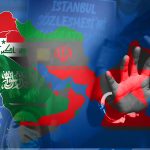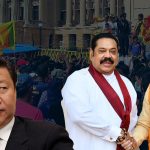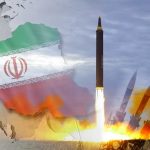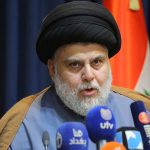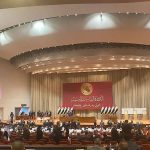‘Dead’ suspected Mumbai attack mastermind held by Pakistan
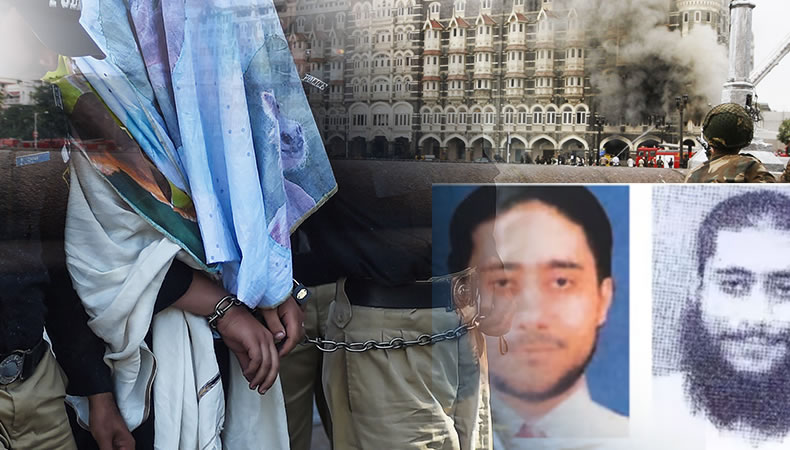

Sajid Mir has a $5 million reward on his head and is listed as one of the FBI’s most wanted terrorists. He has been wanted by both the United States and India for more than ten years. Mir has ties to Lashkar-e-Taiba (LeT), a group that the UN has labeled as a terrorist organization and is thought to be responsible for the November 2008 siege, during which a group of 10 men launched coordinated strikes on a number of targets. Six Americans, six Americans-at-large, as well as tourists from Japan and other countries, were among the approximately 170 fatalities.
Pakistan’s determination to remove itself from the Financial Action Task Force’s global listing for financing terrorism appears to have culminated the case. Hammad Azhar, the man in charge of talks with the international watchdog for the previous three years and the former finance minister of Pakistan under the recently overthrown government of Prime Minister Imran Khan, confirmed to Nikkei that Pakistan took actions against Mir and other terrorists that were “satisfactory” to the FATF. Pakistan has been kept on the task force’s Grey List, which is designed to track and isolate non-compliant nations.
Likewise, a senior FBI officer told Nikkei Asia that Mir is “alive, in custody, and has been sentenced” in Pakistan while speaking on the record. According to a different former Pakistani official who is familiar with the situation, “Pakistanis have acknowledged to both India and to America that a man called Sajid Mir, who was wanted in connection with the Mumbai attacks and whom Pakistan had long claimed was either dead or not locatable… they have actually found where he is.”
Related Posts
He “supposedly functioned as the chief planner of the [Mumbai] attacks, supervising preparations and reconnaissance, and was one of the Pakistan-based controllers during the operations,” according to the FBI. Online rumors of Mir’s arrest have surfaced, but they have never been confirmed.
In addition, the FBI asserts that between 2008 and 2009, Mir planned a terrorist attack on a newspaper and its staff in Denmark. He was charged with terrorism in 2011 by a Chicago court. The Mumbai attack’s project manager was believed to remain free in Pakistan, according to the U.S. State Department’s assessment in its Country Reports on Terrorism in December 2021.
Pakistan has made a number of U-turns in response to the Mumbai attacks. Islamabad immediately disputed all of New Delhi’s accusations of complicity. Investigations, detentions, confessions, and convictions in both India and the United States over a period of years compelled Pakistan to act against Laskhar-e-Taiba, many of whose leaders and cadres are thought to be based there. The FBI claims that Mir is connected to the group.
Nevertheless, Pakistan denied Mir’s presence there and, in accordance with a number of current and former officials, repeatedly maintained that he had either died or was otherwise untraceable.
Mir’s arrest is still not formally acknowledged by Pakistan. Hina Rabbani Khar, the deputy foreign minister, told Nikkei Asia that she would not comment on this specific situation. The Pakistani Embassy in Washington did not respond to requests for comment. The spokesperson for the Pakistani military remained silent. Senior police officers and FIA (the Federal Investigation Agency), Pakistan’s equivalent of the FBI, did not confirm nor deny the arrest either.
Pakistan is believed to have changed its stance as it applied to be removed from the FATF’s anti-terror financing Grey List and in response to the presentation of actionable intelligence regarding Mir, a voice signature discovered through the monitoring and analysis of Pakistan’s communications system. According to a person with knowledge of the events, Pakistan received this information as well as additional specifics from a FATF member state.
The FATF Grey List does not impose sanctions on countries, but it is a step down from the Black List, which does, barring countries from participating in the international financial system. Along with Pakistan, the Grey List includes 23 nations, while the Black List includes Iran and North Korea.
Pakistan has put itself on a route to leave the Grey List by finally apprehending and convicting Mir and other designated terrorists, while also aiming for a wider resetting of relations with Washington and New Delhi.
The FATF stated last week that Pakistan had completed all necessary “action items,” but that it will only be removed from the watchlist following a forensic “on site” evaluation by member representatives. FATF President Marcus Pleyer told journalists that Pakistan “has proved that it is currently pursuing terrorist financing investigations and prosecutions against senior leaders of U.N.-designated terrorist groups” without mentioning Mir or any other specific people.
Furthermore, he added, “Pakistan’s reforms are excellent for the stability and security of the nation and the region.” Former Pakistani envoy to Washington and current director for South and Central Asia at the Hudson Institute in Washington, Husain Haqqani, made the following observation: “Pakistan now seems to have fully cooperated with the FATF’s action items. That most likely suggests that certain anti-India jihadi leaders have been identified and apprehended who Pakistan had previously denied knowing of.”
After this, there is no reason for Pakistan to be on the Grey List, said Haqqani, who has long advocated for Pakistan to change its strategy for combating terrorism and extremism.
The majority of the 39 members of the FATF voted to remove Pakistan from the blacklist at a meeting in October 2021, according to Azhar, the former finance minister, who claimed that Pakistan had completed the necessary action items by last year. India and a few other countries decided to retain Pakistan on the list, according to an individual familiar with the consensus-based proceedings.
According to Azhar, by the time of the FATF conference in April 2022, Pakistan had taken extra steps to appease the group’s members, including disclosing more information regarding discovering and punishing Mir and other designated terrorists. In his statement, he said that Pakistan had given them “additional information regarding following him and punishing him, along with other U.N.-designated terrorists, demonstrating that his case had been treated as per law.”

